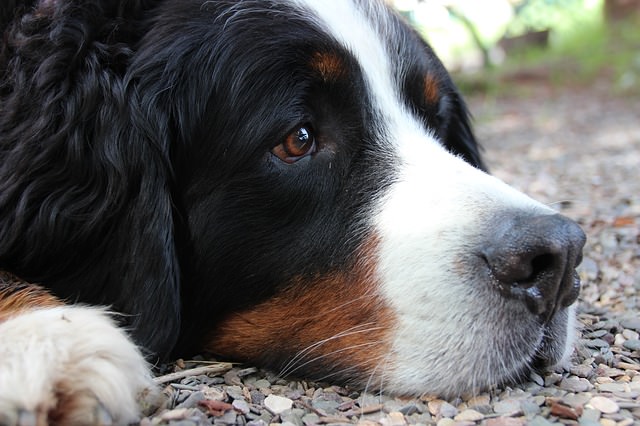Most people have suffered a stomach bug, also called viral gastroenteritis. Most of these infections in humans are attributed to norovirus. Extremely infectious among humans, it makes most who are exposed ill. According to the CDC, norovirus is responsible for 19-21 million human cases per year. Over 90% of the cruise ship incidents in which large portions of the ship’s crew and passengers fall ill with stomach bugs are attributed to norovirus. (1)

In essence, norovirus is not your friend. Stomach bugs are one of the worst experiences in the human condition. They are responsible for many ER visits and missed work days, so finding out as much as we can about the spread of norovirus is a good idea.
Norovirus can live on surfaces and contaminate food, but researchers for the Journal of Clinical Microbiology just released new and important findings that suggest that norovirus may infect dogs too. Several different types of the virus were able to bind with canine cells, suggesting that infection is theoretically possible. (2)
Your bad stomach bug may be able to infect your dog too, and I have heard many stories that might suggest this is true. The dogs in this study tested positive at nearly the same percent of exposure as the human population, further proving that we are exposing our dogs.
But the big questions still looming are whether or not our dogs actually become ill from the virus (or merely mount an immune response upon exposure) and if dogs can serve as a source of infection for us and our families. These scientists were able to show an immune response to the virus in dogs suggesting productive infection, but no one has demonstrated whether the virus can enter the cells or reproduce there.

These findings are a really big deal to dog lovers everywhere, even though they might not know it. It would have been most reassuring if the microbiologists had found no sign of immune response in the dogs and no evidence that human norovirus could attach to canine cells, but this was not the case. We do not know the extent to which (or even if) we can make our dogs sick or vice versa with this virus.
If you are experiencing vomiting and diarrhea, isolate yourself from your dog (and your human family too) for 3 days after the cessation of signs. To protect yourself, your family and your dog, CDC reminds us to always practice proper hand hygiene, especially if you are sick, but you could be infectious before you are clinically ill.
Wash your hands thoroughly with soap and water after handling any type of waste or using the toilet and before any type of food preparation (yours or the dog’s). You can add in alcohol hand sanitizers, but these are never a substitute for good old fashioned scrubbing with soap and water.

Whether a human or a canine is sick, any surface that has been exposed to vomit or diarrhea must be disinfected. The CDC advises mixing up a disinfectant bleach solution (5–25 tablespoons of household bleach [5.25%] per gallon of water) to scrub contaminated surfaces and wash any fabrics or bedding immediately. Handle potential contaminants carefully and wear gloves.
Because norovirus can contaminate raw food, be sure that no one in your family (human or dog) eats raw or undercooked foods, especially shellfish. For vegetables and fruits that are consumed raw, a thorough washing is essential. Even if you are always careful about the food your human family eats, if you feed your dog raw food, it is not clear whether she could become ill and/or spread disease to you.
Norovirus is probably not going to kill you, but has led to death in some patients, especially the elderly or very young. If infection can be avoided for you or your dog, trust me, you want to avoid it!
- Centers for Disease Control and Prevention website, Norovirus, About and Preventing
- J Clin Microbiol. 2015 Apr 1. pii: JCM.02778-14. [Epub ahead of print], Evidence for human norovirus infection of dogs in the UK.

